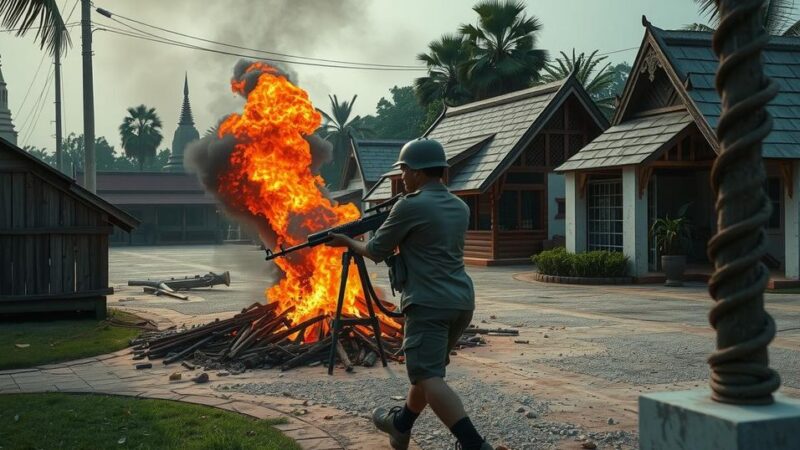Simcha Rotem, a prominent figure in the Warsaw Ghetto Uprising, passed away at 94, highlighting the courageous Jewish resistance against Nazi forces in 1943. His story, marked by bravery and resilience, serves as a testament to the desperate fight for survival amid overwhelming adversity and is commemorated within the larger context of Jewish history during World War II.
The narrative surrounding the Warsaw Ghetto Uprising is pivotal in understanding Jewish resistance against Nazi oppression during World War II. Simcha Rotem, known by his alias “Kazik,” was among the last surviving fighters of this significant uprising, which transpired from April to May 1943. Upon the death of Mr. Rotem on December 23, 2018, at the age of 94 in Jerusalem, his life and the courageous resistance of Jews during this devastating period have garnered considerable global attention. At merely 19 years of age, Rotem witnessed the German forces invade the Ghetto on the eve of Passover, an action characterized by both brutality and blasphemy. Despite their dire circumstances, the inhabitants of the Ghetto fought back valiantly, resulting in the deaths of 16 German soldiers and injuring 200 more. Their resistance persisted for almost a month, despite the overwhelming firepower of the SS, which led to the destruction of much of the Ghetto. In expressing his condolences, Israeli Prime Minister Benjamin Netanyahu remarked, “Kazik fought the Nazis, saved Jews, immigrated to Israel after the Holocaust, and told the story of his heroism to thousands of Israelis. His story and the story of the Uprising will forever be with our people.” Recalling his initial reaction to the sight of the massive German forces, Rotem shared, “Right at the beginning, when I saw the mass of German forces enter the ghetto, my initial reaction—and I guess I wasn’t alone in this—was one of hopelessness. What chance did we have with our miserable supply of firearms to hold off this show of German force with machine-guns, personnel carriers and even tanks? … An absolute sense of powerlessness prevailed.” Yet, the fighters utilized their limited resources to make every bullet count. In his role as a liaison between various bunkers, Rotem participated in the resistance and orchestrated the escape of approximately eighty survivors through the extensive sewer system of Warsaw. He evaded capture and continued the fight in the Polish forests, returning in August 1944 to engage in the Warsaw Home Army Uprising. Following the war, he emigrated to Palestine, later contributing to the Yad Vashem committee, and was honored by Poland on the 70th anniversary of the Uprising for his pivotal role during the war. The intensity and sheer desperation of the battles fought during the Ghetto Uprising are often unparalleled in military history, and the passing of heroes such as Simcha Rotem serves as a profound reminder of these extraordinary acts of courage.
The Warsaw Ghetto Uprising represents a critical moment in Jewish history, showcasing the courage and resistance of Jewish fighters against the Nazi regime. Initiated in April 1943, this uprising symbolized not only the struggle against inhumane oppression but also the spirit of hope and resilience in the face of overwhelming odds. Simcha Rotem’s contribution as a fighter and survivor highlights the individual narratives that formed the collective experience of resistance during this tumultuous period.
Simcha Rotem’s death marks the loss of a significant voice in the narrative of the Warsaw Ghetto Uprising, a key event in Jewish resistance during the Holocaust. His courageous actions, memorialized in the annals of history, remind us of the enduring legacy of those who fought against tyranny and the importance of preserving such stories for future generations. As we reflect on this history, we honor the memory of Rotem and the heroism exhibited by countless individuals during one of the darkest chapters of human history.
Original Source: www.hoover.org






